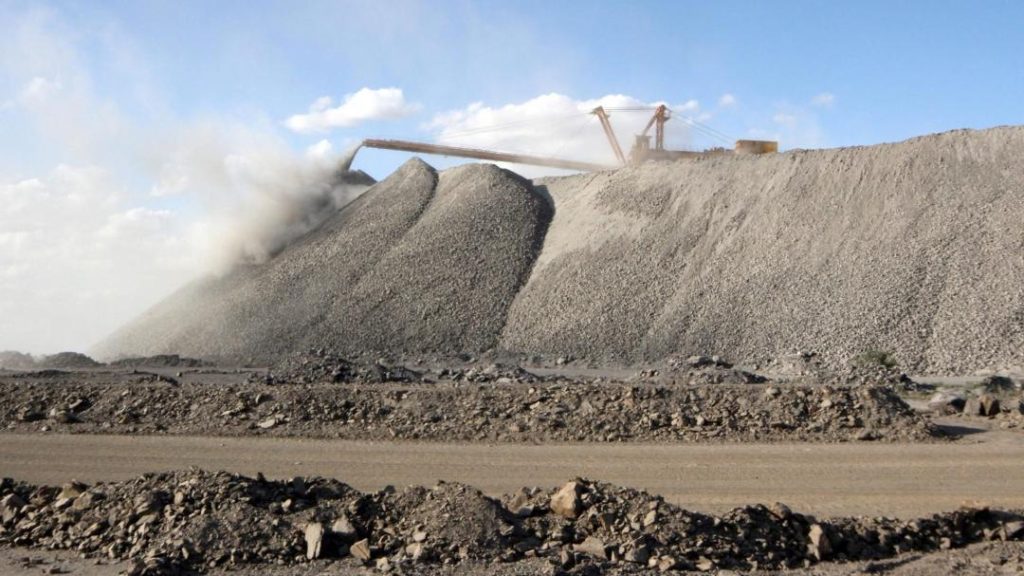
China’s Rare Earth Ban Disrupts Global Auto Industry
The global auto industry is reeling from China’s sudden export ban on rare earth minerals, a crucial component in the production of electric vehicles (EVs). As the world’s largest producer and processor of rare earth elements, China’s move has sent shockwaves through the industry, causing widespread disruptions to supply chains and driving up costs for automakers.
Rare earth minerals, a group of 17 elements with unique magnetic, electrical, and optical properties, are essential for the production of critical components such as magnets, sensors, and actuators. In the context of EVs, rare earth minerals are used in the motors, gearboxes, and other components. China’s dominance in the rare earth processing market, with over 80% of global production, makes its export ban a significant blow to the industry.
The impact of the ban is being felt across the globe, with EV manufacturers, suppliers, and automakers scrambling to find alternative sources of rare earth minerals. The consequences are severe, with rising costs, delayed production, and concerns about the sustainability of the global supply chain.
The Impact on EV Manufacturers
The ban has hit EV manufacturers particularly hard, as they rely heavily on rare earth minerals for their products. Companies such as Tesla, Volkswagen, and General Motors have been forced to reassess their supply chains and explore alternative sources of rare earth minerals.
Tesla, the largest EV manufacturer in the world, has been affected by the ban, with reports suggesting that the company is facing production delays and increased costs due to the shortage of rare earth minerals. The company has been exploring alternative sources of rare earth minerals, including recycling and recycling technology, to reduce its dependence on China.
Volkswagen, another major EV manufacturer, has also been affected by the ban. The company has announced plans to increase its investment in recycling technology to reduce its reliance on rare earth minerals. Volkswagen has also partnered with other companies to develop alternative technologies, such as magnets made from alternative materials.
Rising Costs and Delays
The ban has also led to rising costs for automakers, as they seek to secure alternative sources of rare earth minerals. The cost of rare earth minerals has increased significantly, with prices rising by up to 50% in some cases. This has added to the already high costs associated with EV production, making it more challenging for manufacturers to maintain their profit margins.
Delays are also a major concern, as automakers struggle to find alternative sources of rare earth minerals. Production timelines have been pushed back, and some manufacturers have been forced to halt production altogether. This has significant implications for the industry, as it can lead to lost sales, revenue, and market share.
A Global Rush for Alternative Sources
In response to the ban, a global rush for alternative sources of rare earth minerals has begun. Countries such as the United States, Australia, and India are looking to increase their production of rare earth minerals to reduce their dependence on China.
The United States, for example, has announced plans to increase its rare earth mining operations, with the aim of becoming self-sufficient in rare earth mineral production. The country is also investing in recycling technology to reduce its reliance on China.
Australia, another major producer of rare earth minerals, is also looking to increase its production levels. The country has announced plans to invest in new mining projects and recycle facilities to meet the growing demand for rare earth minerals.
Rare-Earth-Free Innovations
In addition to exploring alternative sources of rare earth minerals, companies are also developing rare-earth-free innovations. This includes the development of magnets made from alternative materials, such as graphene and ferrite.
Graphene, a highly conductive and flexible material, is being explored as a potential replacement for rare earth magnets. Ferrite, a type of iron oxide, is also being used to develop magnets that are free from rare earth minerals.
These innovations have the potential to revolutionize the industry, providing a sustainable and reliable source of critical components. They also offer a way for companies to reduce their dependence on China and mitigate the risks associated with the rare earth ban.
Conclusion
China’s rare earth ban has sent shockwaves through the global auto industry, causing widespread disruptions to supply chains and driving up costs for automakers. The ban has hit EV manufacturers particularly hard, with companies forced to reassess their supply chains and explore alternative sources of rare earth minerals.
As the industry looks to the future, it is clear that a shift towards sustainability and diversification is necessary. The development of rare-earth-free innovations, such as magnets made from alternative materials, offers a way for companies to reduce their dependence on China and mitigate the risks associated with the rare earth ban.
In the meantime, the global rush for alternative sources of rare earth minerals continues, with countries such as the United States, Australia, and India looking to increase their production levels. As the industry navigates this challenging period, one thing is clear: the future of the global auto industry will be shaped by the availability of rare earth minerals.
Source:
https://ascendants.in/business-stories/china-rare-earth-mineral-ban-impact/




